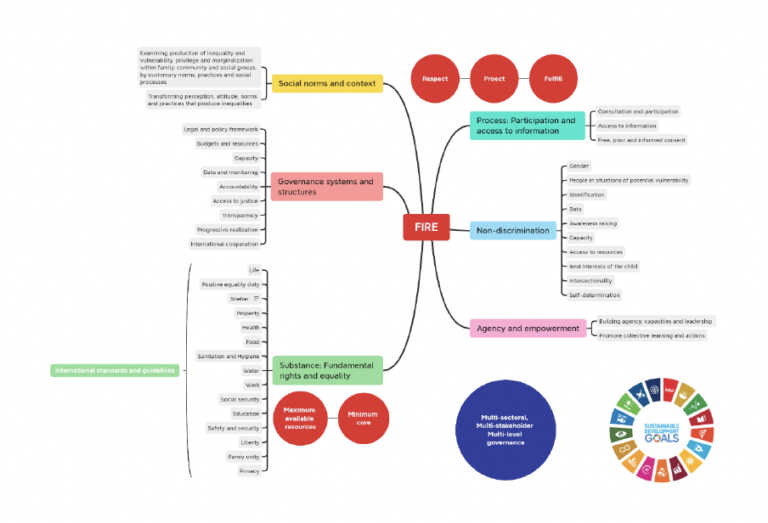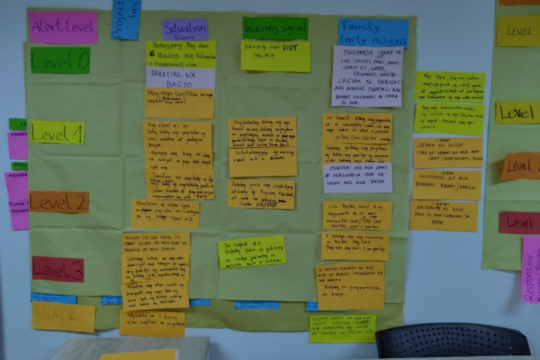The regional training course on rights-based and inclusive approaches to early warning evacuation, and camp management took place on 8 December 2021. The workshop was led with the mentorship of Dr. Matthew Scott, Senior Researcher, Team Leader of the Raoul Wallenberg Institute (RWI), Sweden. It included participants from the members of the Regional Technical Working Group on Inclusive Approaches in Localization (RTWG-IAL), nominees from the Asian Preparedness Partnership (APP) countries, APP Program Team, and the participants from Bangladesh and Lao PDR through the APP + approach.
The course was designed to introduce disaster risk reduction and management (DRRM) practitioners to the core concepts underpinning a rights-based and inclusive approach to early warning, evacuation, and camp management. Dr. Scott initiated the training with a brief review and introduction of the handbook for the course. He also provided them with an overview of the framework for integrating rights and equality (FIRE). The framework focuses on six elements – social norm and context, multi-level governance systems and structures, participation and access to information, fundamental rights and equality, non-discrimination, and agency and empowerment – to build on the 2003 United Nations Common Understanding on Human Rights.

The first session sought to describe key elements and sub-elements of a rights-based and inclusive approach and identify opportunities to integrate rights-based and inclusive approaches in specific national or sub-national training/operations. The members joined country-specific breakout groups to discuss and analyze how FIRE criteria is being implemented in their countries. The groups returned to the main session and presented their findings. Dr. Scott provided a summary of the insights and elaborated on the exercise that the group would be conducting in the second session.
Attendees will have a comprehensive understanding of four elements of a rights-based and inclusive approach and identify important international and regional policy documents endorsing the adoption of this approach in the context of disaster risk reduction and climate change adaptation by the end of the course. They will also be able to apply these elements when evaluating existing early warning, evacuation, and camp management measures from local to national levels.


